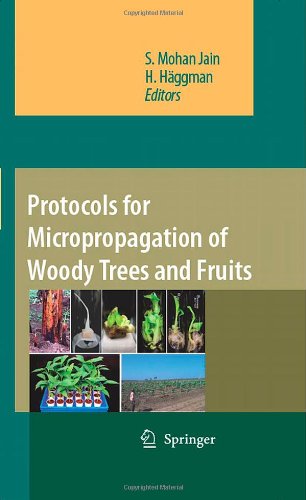

Most ebook files are in PDF format, so you can easily read them using various software such as Foxit Reader or directly on the Google Chrome browser.
Some ebook files are released by publishers in other formats such as .awz, .mobi, .epub, .fb2, etc. You may need to install specific software to read these formats on mobile/PC, such as Calibre.
Please read the tutorial at this link: https://ebookbell.com/faq
We offer FREE conversion to the popular formats you request; however, this may take some time. Therefore, right after payment, please email us, and we will try to provide the service as quickly as possible.
For some exceptional file formats or broken links (if any), please refrain from opening any disputes. Instead, email us first, and we will try to assist within a maximum of 6 hours.
EbookBell Team

4.7
76 reviewsMicropropagation has become a reliable and routine approach for large-scale rapid plant multiplication, which is based on plant cell, tissue and organ culture on well defined tissue culture media under aseptic conditions. A lot of research efforts are being made to develop and refine micropropagation methods and culture media for large-scale plant multiplication of several number of plant species. However, many forest and fruit tree species still remain recalcitrant to in vitro culture and require highly specific culture conditions for plant growth and development. The recent challenges on plant cell cycle regulation and the presented potential molecular mechanisms of recalcitrance are providing excellent background for understanding on totipotency and what is more development of micropropagation protocols. For large-scale in vitro plant production the important attributes are the quality, cost effectiveness, maintenance of genetic fidelity, and long-term storage. The need for appropriate in vitro plant regeneration methods for woody plants, including both forest and fruit trees, is still overwhelming in order to overcome problems facing micropropagation such as somaclonal variation, recalcitrant rooting, hyperhydricity, polyphenols, loss of material during hardening and quality of plant material. Moreover, micropropagation may be utilized, in basic research, in production of virus-free planting material, cryopreservation of endangered and elite woody species, applications in tree breeding and reforestation.